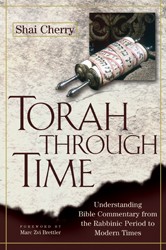By
– August 26, 2011
Jewish mysticism was overlooked for many years in both traditional and academic study. Its return to prominence suggests a renewed interest in spirituality and in the wisdom Jewish tradition offers. Sometimes, however, that popularization has come at a cost. Daniel Matt’s outstanding translation and commentary on the Zohar reconnects this popular interest with a strong academic and textual basis.
The translation is detailed and well researched throughout. The commentary, by offering Rabbinic and Classical parallels, helps explain the sometimes coded or obscure language used by the author(s) of the Zohar. Matt’s own explanations do bring in technical mystical terminology including references to the Sefirot, but only in a way that illumines rather than obscures the text.
Volume 5 includes the famous Sava De-Mishpatim, an account of an old donkey driver who turns out to be far more knowledgeable in Torah than the Sages in the Zohar expect. Usually cited in bits and pieces, this passage in its whole context shows itself to be far more dense, rich, and moving when viewed as one with Matt’s notes and commentaries. Volume 5 is an outstanding addition to what is becoming the definitive translation of Zohar.
David Booth is the Rabbi of Congregation Kol Emeth in Palo Alto. He has published numerous articles in both scholarly and popular publications. He was a featured speaker at the FJMC International Convention in 2001.




